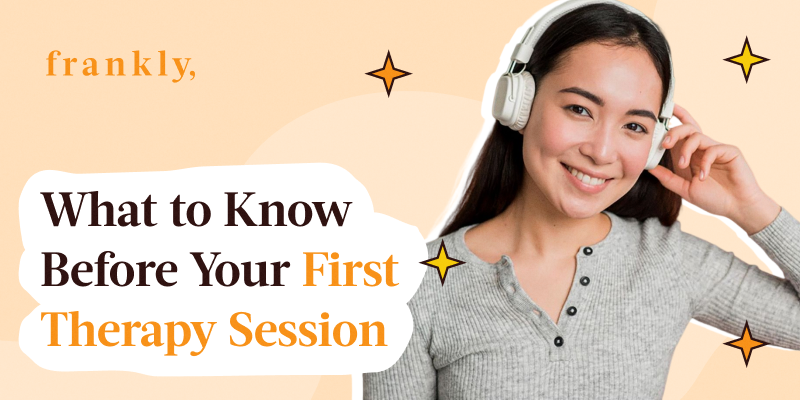What to Know Before Your First Therapy Session

Getting ready for your first therapy session can be nerve-racking, whether you’ve never been to therapy before or you’re starting with a new mental health provider. Not knowing what to expect can be intimidating, and may deter some people from pursuing therapy and getting the support they need.
Every therapist is different in their approach, style, and area of specialization, so it's OK to feel out the dynamic and make sure you are working with the right provider.
Take a look at some of the common questions people ask, and our thoughts on how you can prepare for your first counseling session.
Q: How should I prepare for my first therapy session?
A: Go in with an open mind. Remember that it might take a few sessions to feel comfortable with your therapist, and the idea of therapy if you’re new to it. Be honest with yourself and your provider about your thoughts and feelings, and answer questions completely so that you can be evaluated accurately. This will help you and your therapist get the most appropriate treatment plan in motion.
Q: What should I expect to happen in my first session?
A: Every therapist is different in their approach. Many will ask you questions about your health, life, family, and work life to get an idea of who you are and what you may be struggling with. You will also be able to ask any questions and express any hesitations you may have. It’s important to have an open dialogue so your therapist can tailor sessions to best support you and provide the highest quality of care.
Q: Are my sessions private? Who will know what I talk about?
A: With very few exceptions, everything that you tell your counselor is confidential. Under the Health Insurance Portability and Accountability Act (HIPAA), your therapist is legally required to protect your privacy unless you present a physical threat to yourself or others or if they receive a court order. Therapists are mandated reporters for instances of ongoing domestic violence or abuse of children, elders, or people with disabilities.
Q: What happens if I cry during a session?
A: It’s okay, and dare we say common to cry! Therapy is a safe space for you to process trauma, deal with stress, and more. Your therapist is trained to help you work through your emotions, tears, and all. Frankly prides itself on being a judgment-free company and platform.
Q: What if I don’t like the therapist Frankly matches me with?
A: If you decide that your therapist isn’t the right fit for you, Frankly will help you find a new one! It’s important to have a good connection with your therapist so you can get the most out of each session. Some people want a “tough love” therapist, while others prefer a counselor with a softer approach. There is no “better” type of therapist, just the one that’s right for you.

Comments ()